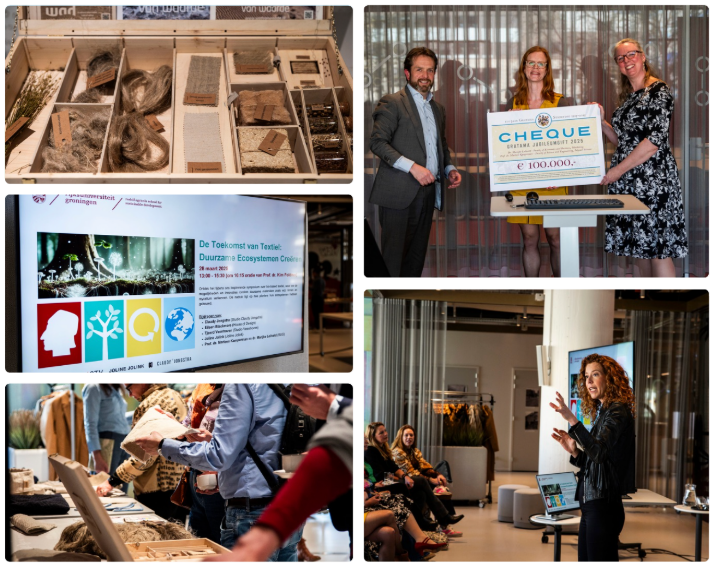Terugblik Minisymposium Textile Futures: Crafting Regenerative Ecosystems
Op 28 maart vond het minisymposium Toekomst van Textiel plaats in het House of Connections. Dit minisymposium ging vooraf aan de oratie van prof. Kim Poldner, RAS fellow en onderzoeker bij FEB op het gebied van circulariteit en verduurzaming van de textielindustrie.
Tijdens het minisymposium waren er zeer interessante en inspirerende bijdragen van onderzoekers, ondernemers en kunstenaars die met hun werk een bijdrage leveren aan verduurzaming van de textielindustrie.
Aanwezige onderzoekers waren dr. Marijke Leliveld en prof. Marleen Kamperman die vanuit hun totaal verschillende expertise (res. duurzaam gedrag en materiaalkunde) een project zijn gestart om bewustzijn bij consumenten te vergroten en de textielproductie te verduurzamen. Belangrijke vragen in hun onderzoek zijn:
-
Hoe kunnen we mycelium textiel produceren dat voldoet aan de minimale mechanische en esthetische standaarden voor draagbare kleding in de mode-industrie?
-
Hoe kunnen we een circulaire, ecologische en economisch duurzame waardeketen ontwikkelen voor mycelium textiel?
-
Hoe kunnen we consumenten motiveren kledingstukken van mycelium te kopen?
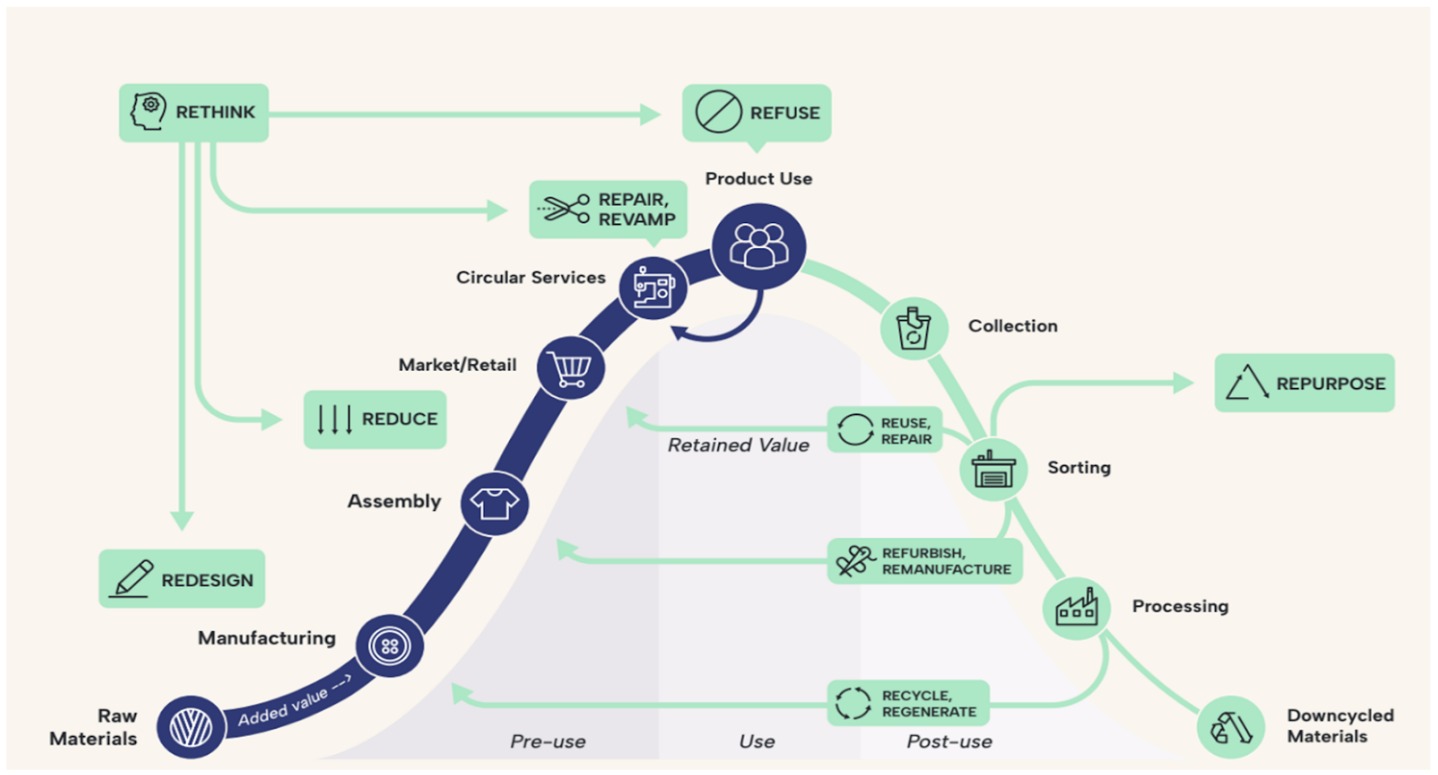
Tjeerd Veenhoven (Studio Veenhoven) en Eileen Blackmore (House of Design) lieten zien hoe er binnen hun bedrijven duurzame producten worden ontwikkelt, bijvoorbeeld producten gemaakt van grassen en vlas. Daarnaast vertoonden zij video's en foto's van technieken die zij gebruiken om op een zo duurzaam mogelijke manier hun producten te maken.
Claudy Jongstra (Studio Claudy Jongstra) bood ons in een video een blik in haar atelier en haar werkwijze. Claudy werkt met name met wol en kleurt haar wol of textielen uit zelf geteelde bloemen. Haar kunst is over de hele wereld te vinden en te bewonderen.
Ishwari Thopte, PhD student van Kim en werkzaam op een project van Joline Jolink, liet zien hoe destructief de textielindustrie is. Het stoot meer CO2 uit dan internationale vluchten en schepen tezamen. Het is de op 2 na grootste verbruiker van water. Kleding wordt weggegooid waardoor microplastics in de bodem en de zeeën terechtkomen. Maar vooral de onderbetaling van miljoenen mensen wereldwijd werkzaam in de industrie om de productie goedkoop te houden. Ishwari vertelde over verschillende projecten waar Joline aan werkt om mensen weer dichter bij de natuur te brengen, om nieuwe stakeholders te vinden, om textiel zo te maken dat het na gebruik als compost kan dienen etc.
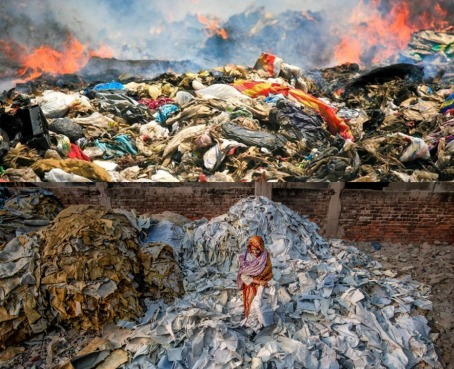
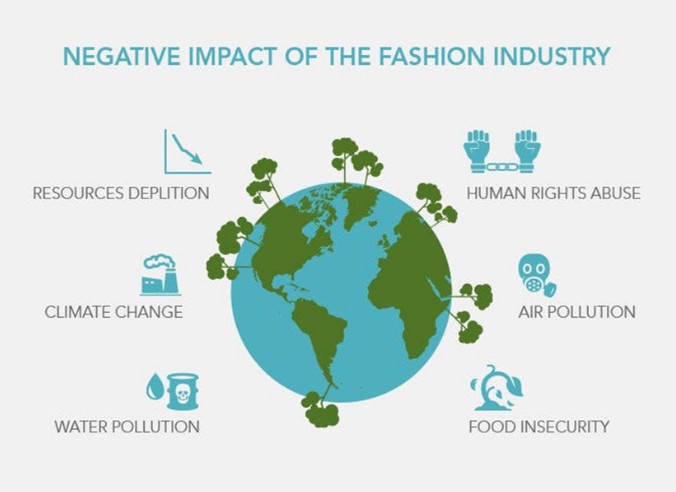
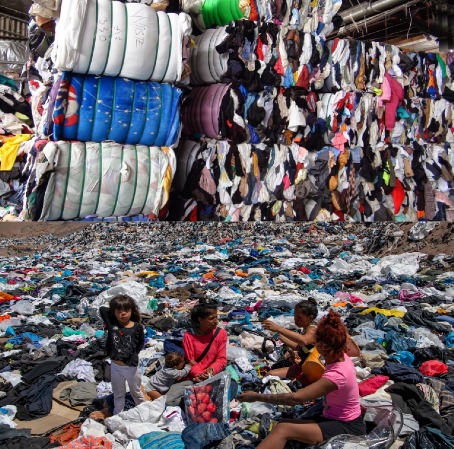
Joline heeft na 18 jaar werkzaam te zijn geweest als een ontwerper in de textielindustrie de zeer moedige stap gemaakt door haar modewinkel in Amsterdam te sluiten en een boerderij met crowdfunding te kopen in Welsum, Overijssel. Hier verbouwt ze vlas en maakt haar eigen zeep, thee en kleuren gemaakt van bloemen en natuurlijke materialen.
Tijdens het symposium kregen Marijke en Marleen een cheque uitgereikt van de Gratama stichting ter waarde van €100.000 als bijdrage aan hun zeer belangrijke en voor de maatschappij zeer nuttige onderzoek. Wij feliciteren Marijke en Marleen met deze prijs.
